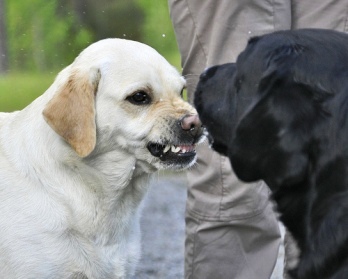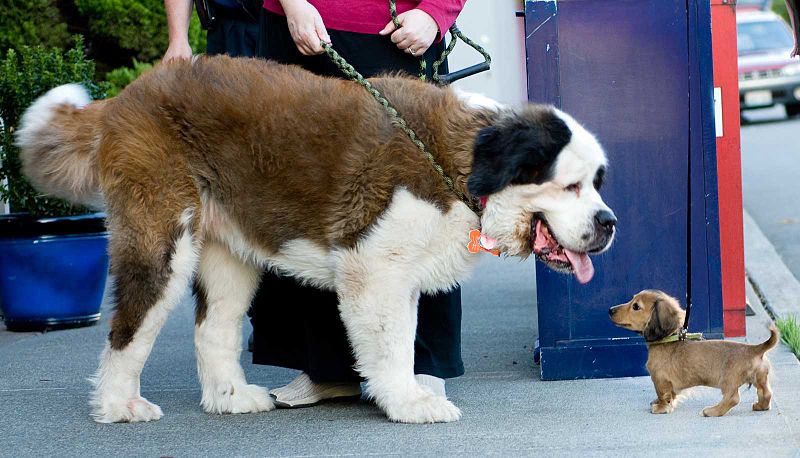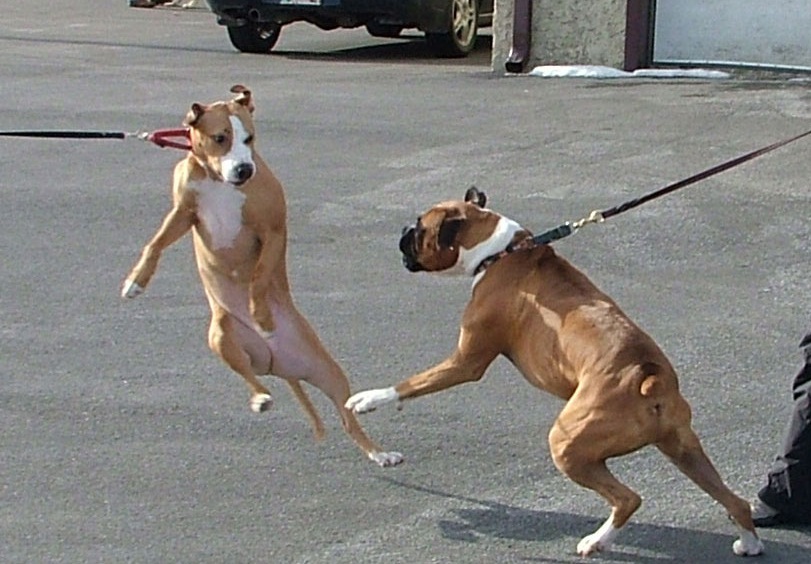Barks Blog
“Be NICE!”

If I’m a dog, and I’m on a leash, and another dog invades my space, I’m gonna growl. That’s just how I feel. Back the heck off, pal! I can’t get away from you, on account of I’m on a leash! That means you need to get away from me. Please and thank you. Plain and simple. So how come my person chides me and snaps, “Be NICE!” What?! I am nice. I just don’t want this guy all up in my business. How about my person could be nice and get me away from him?!
As a human, I’ve been on both sides of this thing. I’ve snapped “be nice!” to my own dog for grumbling at a would-be new friend who came on too strong. And this clashes with my iron clad conviction that she has every right to growl, to tell another dog–and me–how she feels and what she needs: more space. But I do try to refrain from this gratuitous scolding, and I cringe when I hear someone else demand “niceness” of their dog.
Why are we so offended by our dogs’ growls in this context?
I haven’t polled the masses, so I invite readers to weigh in with their own observations. But here’s my guess. I think we reprimand our dogs for what we perceive as rudeness for two main reasons:

1) We feel our dogs’ behavior reflects on us personally. If they comport themselves with grace, it makes us look good. If they act like jerks (in our view), it looks like we’re not very good at this dog stuff.
2) We’ve absorbed a widespread societal maxim that says all dogs should want to play with all other dogs, all the time, and if they don’t, they’re not being nice.
This isn’t fair, and it isn’t reasonable.
First of all, let’s stop taking our dogs’ “misbehavior” so personally. They’re dogs. They have dog ways. They do dog things–including growl when they need to. Your dog would tell you, get over yourself–it’s not about you. And, dogs being dogs, they’re going to growl when circumstances warrant it. To you, it may seem obnoxious, but to dogs, it’s a legitimate part of their behavioral repertoire.

As for universal love among dogs? Forget about it. At the risk of anthropomorphizing, can we just accept that dogs can be choosy about the company they keep? Sure, some are social butterflies, the life of the party. But others are more selective, and some are shy, and some like their people better than their own kind–and it’s all normal.
A lot of dog owners overlook two basic truths that would help them understand their dog’s snarking–and prevent it in the future:
1) The leash can make dogs feel trapped and put them on the defensive.
2) Consequently, putting some distance between the growling dog and the dog who’s irking him can quickly restore peace.

People often don’t realize how being leashed impedes their dog’s social communication with other dogs. An unleashed dog can choose to approach another dog on his own terms, or ignore it, or walk away–or run. Unfettered and unencumbered, he can express his full range of subtle signals that tell other dogs about his emotional state and interest in meeting them.

On leash, body language can be suppressed or distorted–unseen or misread by other dogs. And on leash, our dogs’ behavioral options are limited. Yes, if my dog wants to meet the other dog, she could try pulling me there. But what if she doesn’t want to interact? Or what if she’s afraid of the other dog? If the other dog muscles in anyway, mine is stuck. All she has is her growl–because that’ll tell the other dog loud and clear to go away.
That growl is a message for me, too. To hear it, and act on it, I need to understand it. It means my dog is uncomfortable and getting overwhelmed, so I need to figure out a way to give her the space she needs to feel calm and safe.
We need to take growling at face value, without judgment. It’s communication. It’s information. It’s an alarm telling you to intervene and defuse the tension. Let’s stop insisting our dogs “be nice” and instead be on their side, come to their aid, have their back. How nice is that?

